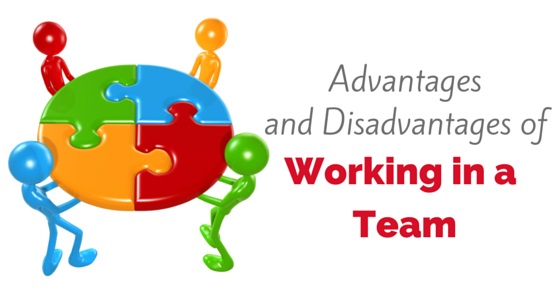Teamwork implies a number of individuals striving towards a common goal. Depending on your personality you might either love or hate working in a team.
Working in a team could prove to be an incredible learning experience when there is a readiness among the members to share information with one another; each member trusts and supports each other and also there is a willingness to stand by one another in time of crisis.
However, things could become chaotic when the team does put forth a united front.
The Basics of Working on Teams:
What is a Team?
A team can be defined as a group of people coming together to achieve a particular goal.
What is Teamwork?
Teamwork is nothing but a commitment shared between the working process of the team to its end product.
The interesting part here is that a team can be a group of individuals but a group can never be a team.
The main reason why teams are formed is to achieve the goals or tasks effectively, which an individual or a group of people fail to meet.
When working in a group, the main focus goes on individual goals and accountability. Whereas in a team, the collective outcome is considered.
Moreover, when working in a team, you need to share certain features and predefined goals.
Types of Teams:
There are mainly 3 types of teams
Project teams:
It is also known as time-limited teams which are mainly organized to complete tasks.
Standing teams:
It is also known as “intact teams” mainly responsible for ongoing current organizational units
Cross-functional teams:
They are formed to bring members from different departments together.
What Makes a Team Successful?
To make a team successful, there are several factors that are responsible for it. Some of them are
- A clear understanding of the team’s mission
- Commitment towards the goals
- Predefined roles and responsibilities
- Proper decision-making process
- Agreed upon ground rules
- Productive group working process
How to Respond to Interview Questions About Teamwork:
During interviews, employers assess candidate’s capabilities to work in a team by asking a few questions like,
- Describe being a part of a team
- Tell me about a challenging workplace situation that you had to deal with
- What role have you played in team situations?
Employers consider teamwork as a great priority, so it is very important for you to express your abilities and skills to work in a team through your answers.
Few Good teamwork skills:
Here are a few teamwork skills that you need to use while answering questions on teamwork. They are,
- Effective Communication
- Conflict management
- Delegating
- Developing consensus
- Drawing out the input of introverts
- Framing key issues
- Taking up additional work during times of crisis
- Listening
- Leadership
- Mediating conflicts
- Monitoring progress
- Recognizing other’s achievements
- Reliability
- Respect
- Setting and following deadlines
- Team building
- Teamwork
How to Answer Interview Questions About Teamwork?
The best answer to this question can be your past experiences or achievements that you had.
Use it as an example to make your answer even more effective.
Also, make sure that you use two techniques to encounter this question.
STAR technique:
The term STAR can be better described as a technique for analyzing problems through the 4 stages which are situation, task, action and result.
Situation:
Explain the context or situation and details regarding when and where the project was taken
Task:
Explain the projects mission and the task that you have taken up
Action:
Describe the action process which you have decided for the task
Result:
Finally the result of the action for that particular task completion.
Being Positive:
This is a very important trait that you need to have. When working in a team, you should always carry a positive attitude and should not be having a negative attitude towards the team.
Especially when asked such a question, your answer should not reflect it.
Always be honest and positive while giving answers.
Here is a sample answer to the interview question, “Tell me about a time you worked on a team”:
“When I was a junior, I worked on a case project for a marketing class where six of us were asked to analyze the marketing practices of Amazon.com and make recommendations for alternative approaches.
Early on we floundered in an effort to find a focus. I suggested that we look at Amazon’s advertising strategy within social media.
I led a discussion about the pros and cons of that topic and encouraged a couple of the more reticent members to chime in. Two of the group members didn’t initially embrace my original proposal. However, I was able to draw consensus after incorporating their suggestion that we focus on targeted advertising within Facebook based on users’ expressed interests.
We ended up working hard as a group, receiving very positive feedback from our professor, and getting an A grade on the project.“- Source: thebalancecareers
What Is the Purpose of a Team?
The main purpose of a team is to inculcate a few top traits into employees so that their and team’s productivity increases.
Some of the traits are,
- Problem-solving
- Participation in planning and developing strategies
- Effective decision making
- Work on performance evaluation and improvement
6 Steps for working together as a team:
- Get an idea about the task
- Look for the skills needed
- Identify the people
- Hire the right people and in an order
- Maintain honesty while hiring
- Managing should be a top priority.
Effective Team-Working Skills:
Some of the effective team working skills which every employer working in a team should possess are
The skills here are grouped into two. They are
Top Task-focused team skills :
- Organizing and Planning Skills
- Decision-Making skills
- Problem-Solving skills
Top Process-Focused Team Skills:
- Communication Skills
- Ability to Build Rapport
- Persuasion and Influencing Skills
- Facilitation Skills
- Feedback Skills
- Skills in Chairing Meetings
- Conflict resolution
Here are some of the most common advantages and disadvantages of working in a team-
Advantages of Working in a Team:
1. Division of Work:
One of the biggest advantages of working in a team is that there is most often an equal division of labour so instead of having to look into all the aspects of a project individually, each person merely has to deal with one aspect of it. Smaller tasks obviously require less time and effort to complete so working in a team cuts down workload significantly.
However working in a team does not imply that you simply focus on your own part, your first priority is obviously your individual task however once you have completed it, you could always be of some assistance to someone else. When you are a part of a team you automatically learn how to work in an unobtrusive and altruistic manner.
2. Shared responsibility when things go wrong:
If for some reason the project fails, then a good team will stand by one another such that they can jointly take responsibility and shoulder the blame. The best kinds of teams are those that are united at all times no matter what. Those teams that resort to pointing fingers at one another during times of crisis show a lack of team spirit.
While working in a team each member should always give his or her one hundred per cent because when everyone gives his or her best then only can the outcome be good, even the smallest of mistakes could cost the entire team.
3. Gaining a new perspective:
One of the main advantages of working in a team is that you can learn to look at things from an entirely new perspective. Over the years you might be used to doing things in a particular manner but when you work in a team then you get to observe how other people work. Though your manner of doing things might be good yet there might be an easier and more efficient way of getting the same task done.
Teamwork does not imply that you renounce your individuality and follow the way in which others work; it simply implies that you get new ideas and learn new things from other members of the team. Working in a team makes one extremely open and receptive to different things when you work in a team everyone’s points of view are taken into consideration and only after careful weighing and measuring of pros and cons does the team jointly come to a decision.
4. Improves communication skills:
For any team project to be a success, it is vital that each team member communicates and consults with the rest of the group such that no one feels in the dark about any decision made and that everyone is in agreement.
Even if you are working on the one aspect of the project that has been assigned to you, it is important to make sure that you are constantly giving the rest of your teammates’ updates pertaining to your progress at each stage.
It is the responsibility of each member to ensure that everyone’s work is running smoothly and that no person has been burdened with an excess amount of work.
5. Development of leadership qualities:
Though being the leader of a team could be a challenge it is also an extremely enriching experience. Being a leader does not imply that you throw your weight around and get things done your way, it means that you serve as a link between team members when you notice that there is some kind of communication gap among members or when you find that an individual is not giving his or her best.
The best kinds of leaders are those that are willing to help anyone in need of it as well as those that are completely honest with the members of the team.
6. You get to play to your strengths:
Since there is a division of work in a team each member can focus on whatever aspect of the project which each individual believes that he or she can handle. When you work in a team you get to decide on which part of the project you are comfortable working on. If there is something you are not comfortable working with then you do not have to stress yourself about it you can simply look into something else.
Everyone’s talents lie in different fields so you can take up whatever task you feel comfortable working on and whatever task you think you will not be able to do justice to, someone else can take that up.
Disadvantages of Working in a Team:
1. Indulging in the blame game when things go wrong:
In times of crisis, it is easiest for the team members to point a finger at someone else and indulge in the blame game. Since there is more collective rather than individual responsibility involved in a team project it is often difficult to tell where things went wrong.
Things become most challenging when one person does his work correctly and the other makes a mistake, as many individuals cannot bear the thought of shouldering the blame when they did their own part flawlessly.
People also resort to the blame game when they believe that there has been an unequal and unfair distribution of work. Problems like these almost always arise when people work in teams. These problems cost rifts among even the best of friends.
2. Unequal involvement and participation of different members:
It is challenging to work in a team when everyone does not put in his or her best efforts. There are two kinds of people while working in a group- those that work tirelessly to get things done and then there are those that are laid back and do not adhere to any deadlines. It is due to some lazy individuals like this that things go wrong and to avoid failure it is often either the team leader or other team members that have to take on the additional task of completing another person’s quota of work as well.
For example in a college group project, everyone gets the same grade irrespective of how much work each person has done, this is one of the chief disadvantages of working in a team. It might breed a lot of ill will among members when they have to take the fall for something they have not done.
3. Clash of ideas:
Things can go incredibly wrong or even fall apart when there is a great deal difference in the working methods of different individuals. Many people prefer to work much in advance and some people believe in working last minute as they think that the pressure brings out the best in them. In such a case it becomes increasingly difficult to coordinate things among different people.
In addition to having varying working styles, things also become complicated when there is a clash of ideas and neither members are willing to compromise. Differences in methodology are much easier to sort out as opposed to ideological differences.
4. One team member’s desire to outshine the rest:
When working in a team it is important for each member to have team spirit. It becomes complicated when one member has the burning desire to outshine the other members of the team.
When an individual starts putting his individual needs before the needs of the group, then the groups can no longer function efficiently. Those individuals that want to show themselves to be better than the rest often fail to shares or communicate their own ideas to the rest of the team and this leads to a communication gap or even a breakdown of communication as a whole.
Working in a dysfunctional group often becomes a source of tremendous stress.
5. You might have to deal with an overbearing team leader:
One of the most common disadvantages of working in a team is that you might have to deal with an overbearing and authoritative leader that is unwilling to listen to your point of view or ideas. In addition to this, it might be more painful when the leader takes the praise for work that you have done or ideas that you have come up with.
Good teamwork and bad teamwork:
“I never found a professional environment that made the production of plays efficient. Teamwork is demanded, but there are very few teams.” – David Rabe
Here’s a video representation of good teamwork and bad teamwork.
These are some of the chief pros and cons involved in working in a team. Though there are a number of advantages involved in being a part of a team, yet at the same time there are an equal number of pitfalls, making you wonder if working individually is actually a better option.












































